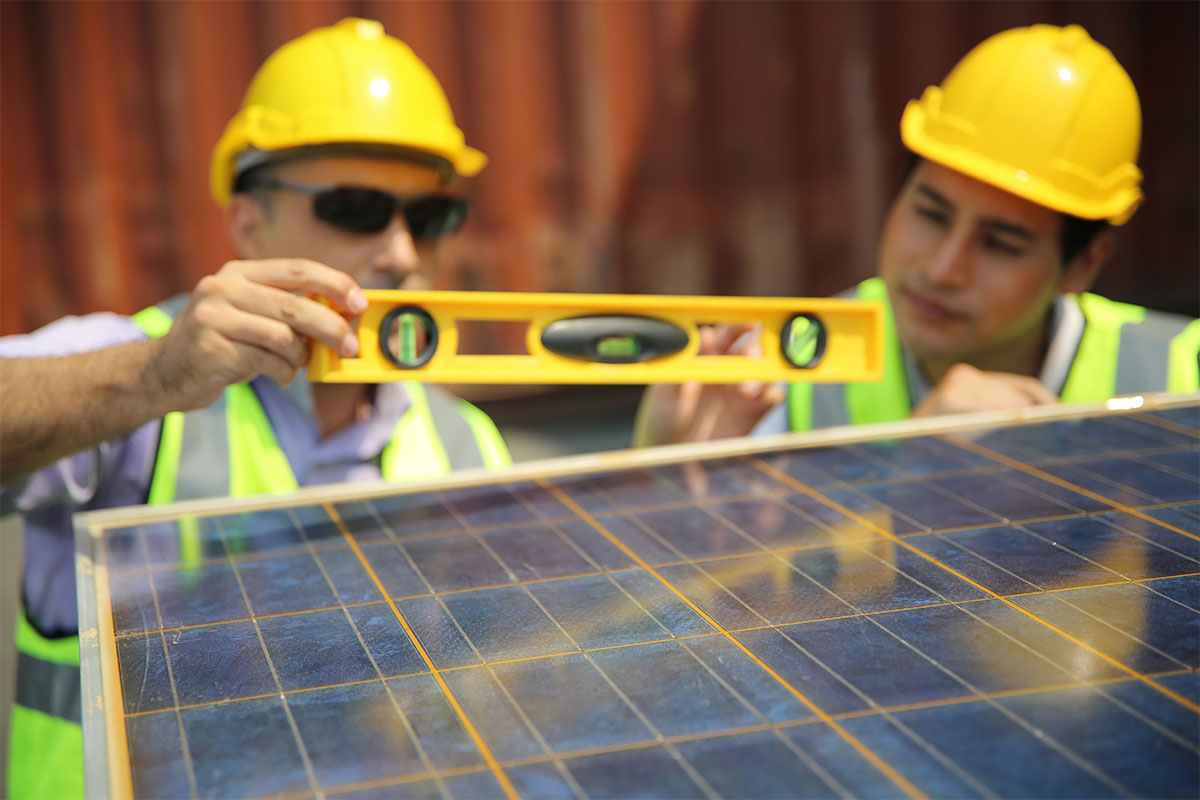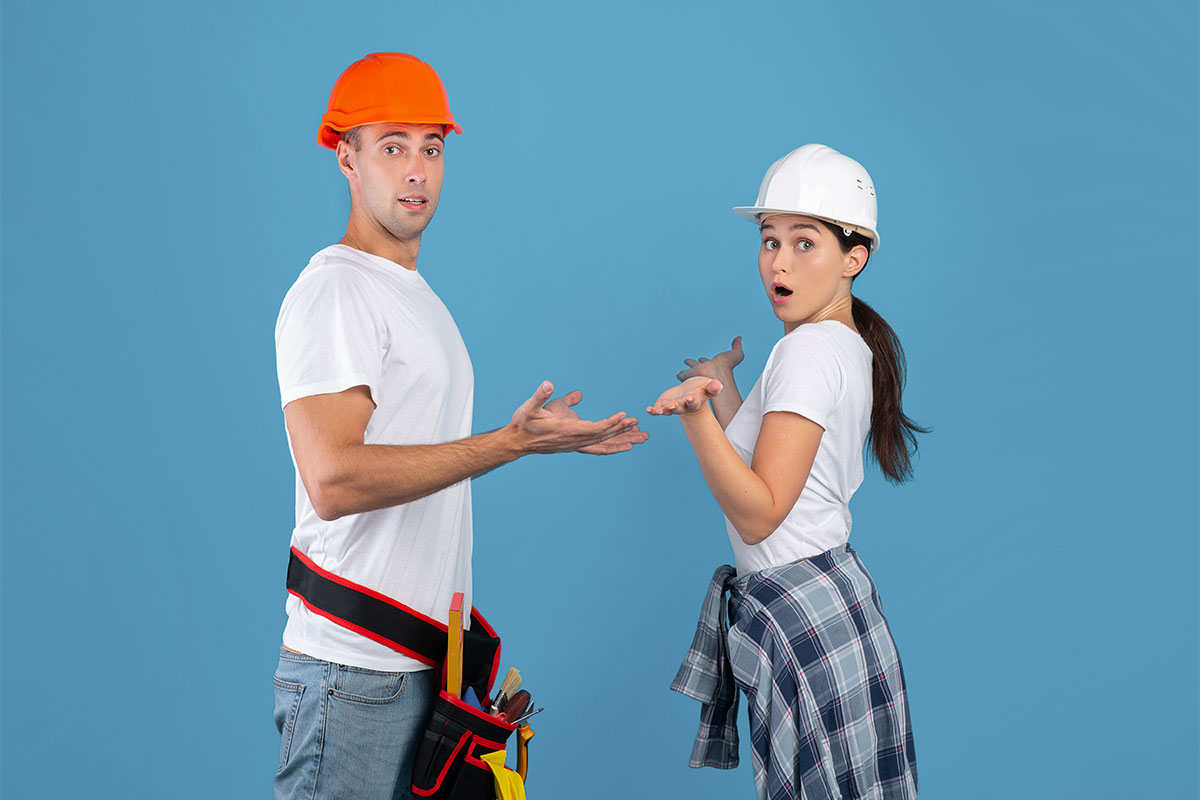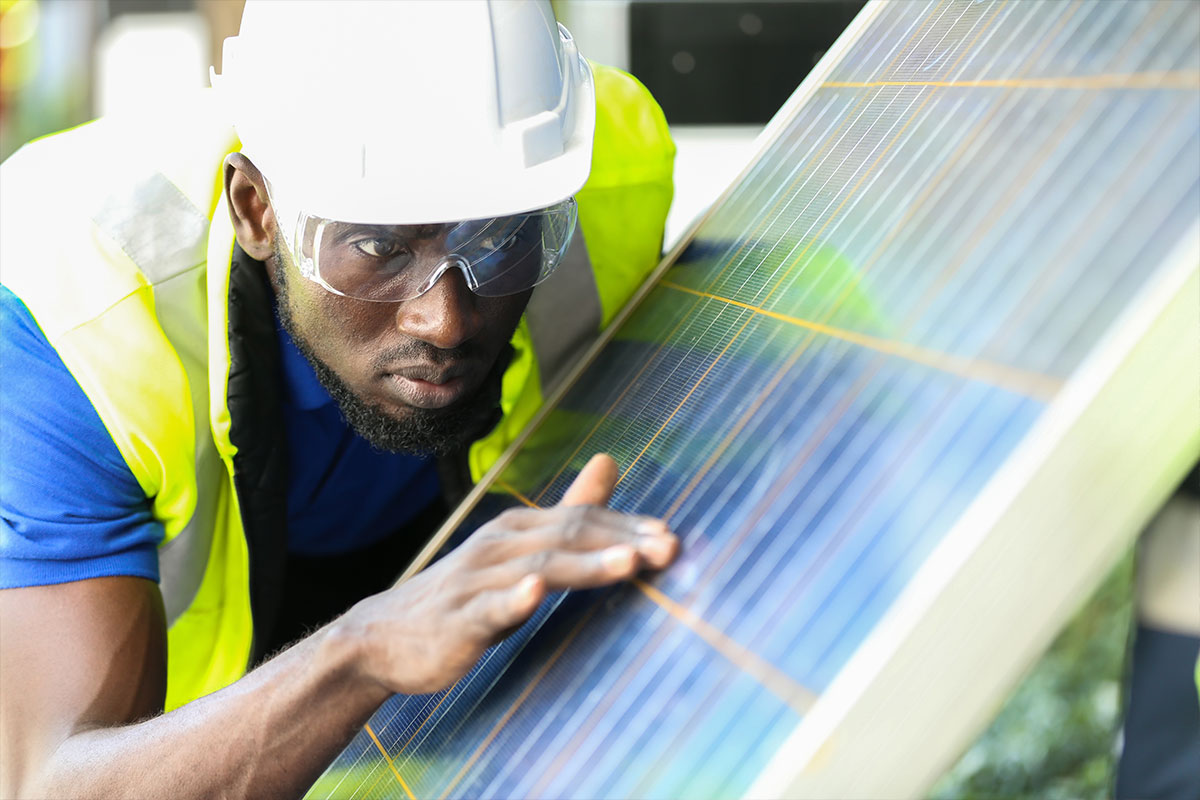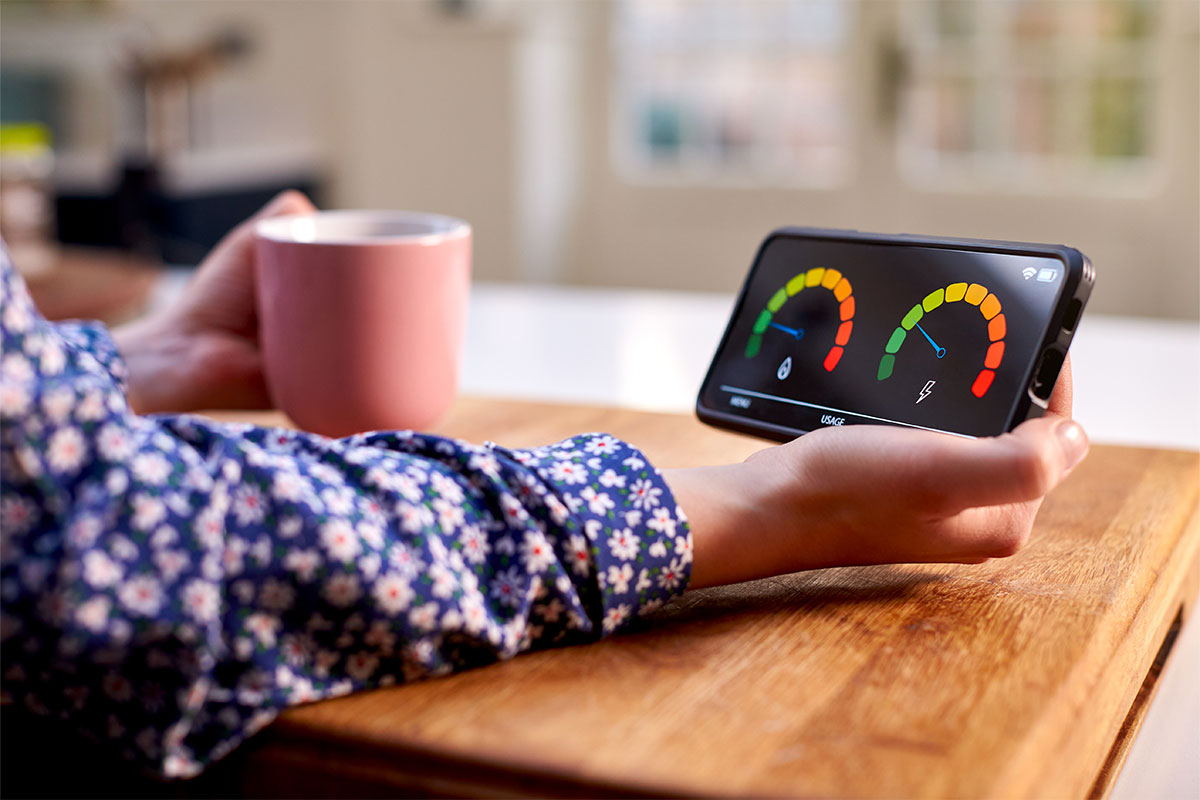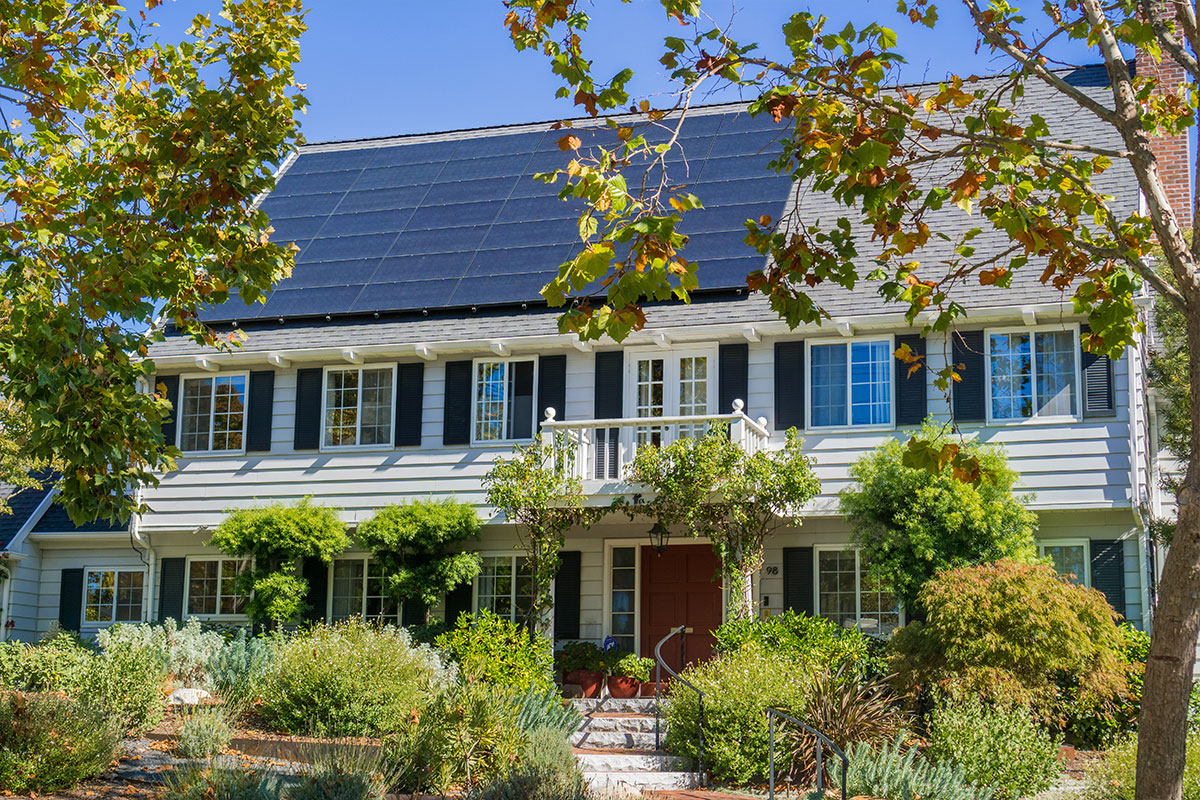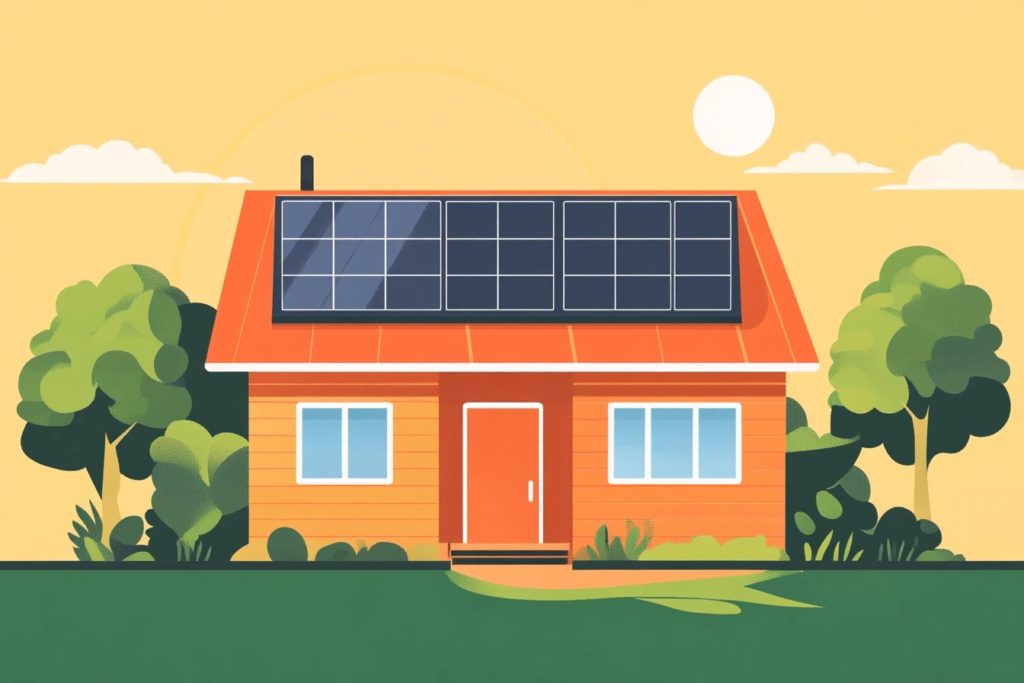These days, everyone knows that installing solar panels for your home is an environmentally friendly decision. However, some people still underestimate how much money they can save with a rooftop residential solar system. In reality, you can save so much cash with home solar panels that they’re actually an excellent investment with a better rate of return than many traditional forms of investing.
Calculate Your Solar Payback Period
To understand how much money you can save with residential solar panels, you need to calculate your solar payback period. This is an estimate of how many years it will take for you to pay off your initial investment and start making money on your solar energy system. If you’re wondering how to calculate the payback period for a solar system, let’s dig into the details.
- Start with Your Expenses: Let’s start with the expenses. The biggest cost is the purchase of your solar panels and related equipment. This figure can vary considerably depending on the size and location of your home, and whether you purchase your solar system up-front or on a solar loan or lease. There can also be some expenses for ongoing maintenance, although these are usually quite low because solar panels don’t require much upkeep.
- Analyze Your Benefits: Once you’ve figured out how much you’ll need to spend, the next step to calculate a solar payback period is to analyze your benefits. Depending on where you live, your state could provide up-front incentives in the form of rebates and tax benefits. When it comes to ongoing benefits, you simply need to take a look at your energy bill and consider how much money you’ll save per month by generating your own power with solar panels compared to buying electricity from the utility company. When you determine your total expenses and your annual savings, simply divide the costs by the benefits to calculate your solar payback period.
- Shop Around: It’s important to shop around with several different solar installers to get the shortest payback period possible. Take recommendations from friends and neighbors, but don’t get too attached to any company before you’ve had a chance to analyze the costs and benefits for yourself. You might be surprised by how affordable some installers make this process!
For most American homeowners, the typical residential solar payback period is 8-11 years. When you consider that solar panels are manufactured to withstand a minimum of 25 years of use, a payback period of 12 years or less is typically considered to be a solid return. However, depending on which state you live in, you could get a payback period as short as just five years in a state like Hawaii.
An important element of determining how to calculate the payback period for solar panels is nailing down the variables that go into this equation. One is to consider how much electricity your home typically uses and whether your planned residential solar power system provides enough energy to entirely offset this usage. Then, you’ll need to determine how much it will cost to install your solar panels and associated equipment.
As we mentioned earlier, there are also solar incentives and rebates to consider. Some states, like Massachusetts, offer so many incentives and tax breaks that you can calculate a solar payback period of just four years in many cases. Unfortunately, if you live in a state like Mississippi that provides very few solar incentives (or none at all), you can expect your payback period to exceed 15 years.
Consider How Much You Pay For Your Electricity
Finally, it’s important to consider how much you pay for your electricity in the first place. Depending on your home’s location, the cost of electricity in different parts of the country can vary significantly. If you can take advantage of relatively inexpensive energy from your utility provider, that changes the math regarding how to calculate your solar payback period. In addition, if you can use net metering to offset the purchase of energy at night or on overcast days by selling your excess energy from sunny days back into the grid, your solar payback period will be considerably shorter than that of a homeowner with no access to net metering.
One of the biggest mistakes people make when installing residential solar energy systems is failing to properly calculate the solar payback period. To maximize your savings and choose the perfect solar power system for your home, simply walk through the steps outlined in this guide and figure out how long you can expect it to take for your solar panels to break even. No matter where you live or how much energy your home uses, there’s a solar solution for your needs.
Do you still have some questions about how to calculate the payback period for a solar system for your home? Perhaps you need some help determining how much energy your solar panels need to generate, or you want some more information about solar incentives in your area? Simply contact LGCY Power at 855.649.4019 and speak with one of our expert representatives today.
Our team members are highly trained in many different aspects of residential solar energy systems, and they can help you calculate the solar payback period for your planned system. We can also help you find the perfect solar installer, thanks to our 500+ partnerships with local consultants and installation companies. Contact us today to discover how LGCY Power can save you money and help you determine how to calculate the payback period for your solar panels!
You’ve finally decided to make the switch to solar panels at home. But now you’ve come to the part where you’re weighing all of your options. A few of your neighbors, co-workers, and friends who went with LGCY Power for their solar conversion couldn’t be happier, saving significant money on their power bills.
But you’re also considering DIY solar panel installation after watching a few YouTube videos. You probably think the DIY route will save you money (it won’t, as we documented here) And you’ve even gone as far as to Google, “Can you install solar panels yourself?”
Now would be a good time to STOP and strongly reconsider. The fact is that trying to install solar panels yourself can (and probably will!) cause serious damage to your roof and even your home – not to mention the fact that it’s dangerous for non-professionals.
It’s not that solar panels cause damage to your roof – it’s when a homeowner or non-professional tries to install them that ROOF problems multiply (significantly increase).
Remember that most solar panels are affixed to a roof using a complex but battle-tested system involving bolts, straps, and nails. Although before you take out your hammer, screwdriver, and drill, weekend warriors should hit pause.
Whew, we may have saved you from a terrible decision!
So why is installing solar panels yourself such a bad idea?
Ask any roofing contractor and they’ll shake their head in dismay at the mere idea of a homeowner getting up on their own roof and installing solar panels – or doing any major work to such a crucial facet of your structure.
According to roofing and construction professionals, there are four commons reasons why DIY solar installs cause havoc:
- Leaks
- Less thermal protection
- Installing on an older, damaged, or wrong type of roof
- Possibly void the roof warranty
Let’s go over each of these briefly:
Leaks
When you install the new solar panels to your roof, you’ll most likely do so with a rack system that’s affixed with nails and lag bolts. Those nails or bolts pierce the roof shingles, membrane, and wood layer, driving them into the subroof or rafters below.
(If you find yourself wondering what a membrane or subroof is, you definitely should abandon your DIY ambitions and call LGCY Power right now!)
Obviously, that leaves a hole right in your roof – which is not an issue when you use a professional installer. Pros use a system of high-tech flashing and sealant or tar to plug and waterproof the holes.
Lastly, the pro installer will meticulously test the roof to make sure there are no weak spots, gaps in waterproofing, or issues.
The sound of holes in your roof may sound precarious, but when handled by licensed, professional installers like those who team up with LGCY Power, the roof’s waterproofing and structural integrity are not compromised at all.
With DIY solar panel installation, it’s very common that homeowners find a nasty, very wet, and extremely expensive surprise the first time it rains. The cost of any potential roof leak or water damage to your home is exponentially higher than the cost of doing it right the first time with a professional installer!
Less thermal protection
Without solar panels, direct sunlight barrages your roof all day, every day, heating up the attic or space below. But once panels are in place, it absorbs most of that heat, creating a cooling effect on the roof and structure below. According to a prominent study published in Phys.org, solar panels can reduce a home’s internal temperatures by up to 5 degrees in the summer, making solar panels an even bigger energy efficiency winner.
However, when homeowners try to install panels themselves, they’ll likely fail to optimize that cooling potential.
Installing on an older, damaged, or wrong type of roof
Certain types of roof materials are more vulnerable to issues with leaking, cracking, and other damage. If your roof consists of wood shingles (also called ‘shake’), or clay, slate, or terracotta tiles, you won’t want to install solar panels into those surfaces.
Instead, pro installers know where to replace or augment specific areas of your roof, so they are good connecting points for solar panels.
Another common problem with DIY solar panel installation is when homeowners try to add a new solar system to an older roof. Over time, shingles, membrane, flashing, etc. all deteriorate, creating cracks, soft spots, or dry rot. Installing new solar panels to those roofs can expose and accelerate those problems – which means more leaks and potential water damage.
Instead, a pro installer will carefully inspect your roof before installation, fixing or replacing problem areas to ensure the roof is in optimal condition to house solar panels. When you turn to LGCY Power for your solar needs, our industry-leading installers will also check your roof for slope, exposure to sunlight, the building height, potential wind, and your roof’s load-carrying capacity and framing.
Unless a homeowner happens to be a licensed roofing contractor, those are all things they’ll miss!
Other problems with DIY solar installation
We’ve talked a lot about the roof, attic, and rafters, but haven’t even touched on the home’s electrical system, which must be correctly wired to the solar panel system. Incorrect wiring, the use of the wrong materials, and other issues cannot only reduce your new solar system’s efficiency but can be flat-out dangerous.
Contact LGCY Power for more information about installing a residential solar system the right way, saving you money and also avoiding potential problems from DIY installation!
You’ve decided to install a solar energy system for your home, starting your journey toward significant financial savings and eco-friendly power consumption. There are many benefits to residential solar systems that far outweigh the few disadvantages. However, one of your most difficult decisions is still to come: how do you find an accredited solar installer in your area?
“Solar installers near me” has become a highly popular Google search, and for good reason. Everyone wants a reputable solar panel installer who knows the intricacies involved with residential solar systems in their area. Regardless of whether you choose a large nationwide solar panel installation company or a smaller local solar installer, there are some important aspects you’ll need to explore.
Work With Experienced Solar Panel Installers
First and foremost, you should only work with solar panel installers who have plenty of experience. This often means checking their certifications and accreditations to make sure they’re reputable. The most important certification is from the North American Board of Certified Energy Practitioners, or NABCEP. If your solar panel installation provider is accredited by the NABCEP, this means that the company’s solar installers meet national standards and have completed a thorough training program.
NABCEP certification is also an excellent indicator that your chosen solar panel installation company complies with all safety regulations and guidelines. It’s also important to find accredited solar installers who carry sufficient liability insurance. If your solar installer makes a mistake that damages your home or personal property — or, in a worst-case scenario, causes an injury to someone on your property — you need to know that they have enough insurance to cover the damages.
Additionally, accredited solar installers are more likely to know the ins and outs of solar permits in your area. Each state has different requirements for building permits, and there may be additional regulations on the county or municipal levels. Furthermore, a certified solar panel installation company will also know which federal and state solar incentives apply to your home, allowing you to maximize your rebates and tax credits.
In addition to checking certifications, you can also take a look at the Better Business Bureau for your area to see how other customers feel about their experiences with nearby solar installers. The BBB has customer reviews and complaints that you can easily sort through, and you can also see which solar installers have earned their BBB accreditation. While this certification isn’t nearly as important as the NABCEP accreditation, it’s still a convenient way to make sure your chosen installer is reputable.
“How do I find the best solar panel installers near me?” This question is a bit trickier, as it all comes down to your personal preferences as a homeowner. Do you prefer to use a large nationwide solar panel installation company with a long track record and a robust service warranty? Perhaps you’re looking for a smaller, local installer that has lots of experience dealing with your specific state and county government agencies?
Which Type of Solar Installer Best Fits Your Specific Situation?
Before you make this decision, you should analyze which type of company best fits your specific situation. Do you prioritize a company that provides more personalized customer support? Are you looking for a solar installer that has expert knowledge of the local and regional intricacies, including incentives, rebates, and net metering regulations? If so, a local solar installer might be the perfect fit for your needs.
On the other hand, if you’re looking for a company that has a ton of experience, you might prefer a national solar installation provider. In addition, large companies purchase components in bulk, which allows them to pass on these savings to you.
One way you can find the best solar installers in your area is to simply ask around. Speak to your neighbors and friends who have solar panels and ask them to discuss their experiences with you. These individuals will likely have existing relationships with either national providers or local companies, and they can give you recommendations from personal experience. Speaking from our own experience, LGCY Power gets plenty of business through word-of-mouth referrals — people remember the great service they receive from our reps and want to share that experience with their friends and families. Finding a great company is practically synonymous with finding a great rep.
Ask Local Government For Recommended Solar Installers
Additionally, your county and municipal governments may have some information that can lead you to the best solar installer for your home. Some local government entities will recommend companies in your area for a wide variety of products and services, including solar panel installation. Finally, other professionals who work on your home might have recommendations. For example, asking your electrician or general contractor for advice can often produce high-quality results. After all, if you already trust these people to work on your home, it’s easy to trust the companies they recommend.
Another option is to simply contact local and national solar installation firms yourself. By speaking with their customer support representatives, you can often get a feel for whether they’ll be a good company to work with. If you have further questions, or if you’d like to know more about what LGCY Power has to offer for solar panel installation, contact us at your convenience by calling 855.649.4019.
LGCY Power provides the best of both worlds between large national solar installers and smaller local companies. We are the national leader for residential solar energy systems, and we have more than 500 local solar consultants and strategic partnerships. If you want the experience of a large nationwide company paired with the local expertise of regional service providers, look no further than LGCY Power!
There’s no doubt that solar power at home will save you significantly on your power bills, and the cost savings of going solar is attracting more people than ever to make the change. However, a small number of homeowners attempt to install the solar panels themselves instead of hiring a licensed, experienced professional firm like LGCY Power.
Why would someone choose to DIY their solar panel installation instead of hiring the right pro?
The Perception of Cost Savings
The perception of cost savings is the main reason to undertake DIY solar panel installation. According to a Pew Research Center survey about solar power at home, 96% of people who were interested in solar thought it would save them money on their electric bills, which was by far the most prevalent reason.
But will DIY home solar panel installation really add up to significant savings at the end of the day? Or does the potential risk and opportunity costs actually make it a more expensive option in many cases?
First off, let’s address how much money you THINK you may save if you opt for the DIY solar option. According to market data by the National Renewable Energy Laboratory, the costs for design, installation, and labor only contribute about 10% of the final bill.
For penny-pinching, coupon-clipping, frugal homeowners who are considering DIY solar panel installation; at best, you’ll potentially save only about 10% of the total cost!
Sure, you can head over to Home Depot, Costco, or go online and easily shop for a home solar kit. At that point, it may seem like you’re saving a couple of bucks on solar. However, the results will probably be as bad as if you tried to order a DIY swimming pool in a box and expected it to last twenty or thirty years.
An established and reputable firm like LGCY Power offers state-of-the-art equipment and solar panels that typically aren’t available to the general public.
Even if it was possible for you to buy these parts and materials on your own (it isn’t), you’d be shocked at how much you’d have to pay as an individual, not a firm doing business in volume.
DIY Home Solar Panel Kits
DIY home solar panel installation kits that are available to the average person through retail stores not only have a larger profit margin, but offer panels, materials, and equipment that are of far lesser quality.
If you do manage to properly install your new (cheap) DIY solar panels and connect the system successfully (which the vast majority of homeowners cannot and do not), they certainly will yield you less power and therefore little savings.
Remember that you’re buying solar panels not just to install them but to use them. So, installing bad panels that don’t work very well just to save a little on up-front costs is like stepping over a dollar to save a penny. But when installation is handled by the pros, you can feel confident that it will save you an exponential amount of money in the long run.
DIY Home Installers Miss Out on Tax Incentives and Credits
Saving the biggest cost benefit for last, DIYers frequently miss out on the tax incentives and credits that are available for solar. Solar firms like LGCY Power make it their business to know every credit, incentive, rebate, and new tax code that deals with solar for homeowners.
In fact, the federal solar tax credit is 26% until 2023, which basically gives you a 26% discount on your solar system’s value.
Update: In August 2022, the solar tax credit was increased to 30% and extended through 2032.
But there’s no way the average consumer who undertakes DIY solar panel installation has knowledge of these tax savings, nor do they know how to fill out the paperwork to apply and access them.
Even if you did have a whole lot of free time and energy to go through that learning curve, in some states, these tax incentives aren’t available to the homeowner unless they’ve used a licensed contractor to install their solar panels and connect their system.
If you’re serious about saving with solar at home and want to make sure you do it the right way, contact LGCY Power today!
Over the last ten years, we’ve seen the hot trend of Do-It-Yourself home improvements, promoted by plenty of reality TV shows. And while we’re all tempted to roll up our sleeves and become DIYers around the house, there are some occasions when it doesn’t save you money. In fact, when it comes to DIY solar installation, you’ll not only squander a whole lot of your valuable time, but will end up spending far more, will probably do damage to your roof or home, and can even put yourself in danger.
You may even see advertisements for DIY solar panel installation kits or systems, but once you make that purchase, you’ll find yourself way over your head and with no place to turn. Going solar at home is far more complex and involved than just jumping up on your roof and attaching the panels, and there’s good reason why the DIY solar option is more fantasy than reality.
In this series of articles, we’ll cover the four reasons why DIY home solar panel installation is a bad idea, including:
- Paperwork, permits, and regulations
- The cost
- Potential damage to your roof and your home
- DIY danger!
Today, let’s look at #1: the paperwork, permits, and regulations that make DIY solar installation unrealistic.
Solar Installation Paperwork
The paperwork necessary to initiate, install, and finalize your solar installation adds up to scores of pages quickly and can even measure up to the stack of documents necessary when you sign a home loan!
If you try to go the DIY solar panel installation route, the burden of finding, organizing, and submitting all of that paperwork will fall on YOU, the homeowner.
To mention a few, you’ll first probably have to file for a permit with your local building and planning department. Typically, they’ll want to see a detailed site plan that outlines the specs of the solar install. But that also includes an electrical diagram, including the calculations showing that the new solar system is compatible with the home’s existing power grid, as well as safe.
If that doesn’t make you throw up your hands and call LGCY Power instead of going the DIY route, you’ll also need to submit plans and specifications to your local utility provider to get their permission to even connect your proposed home solar system to their power grid.
Even if you get through that arduous and very detailed process, most building departments will only issue permits if you can show that professional contractors with specific certifications or licensing are doing the work. And there are no easy exceptions for DIY solar installation! When it comes to electrical, solar, and power systems in your home, the licensing requirements are in place to protect you, the homeowner.
The river of paperwork flows on when it comes to the rebates, incentives, and tax credits that may be available when you transition to solar. Part of the reason why solar power is so cost-efficient is the availability of various rebates and incentives, which may be offered on a state, local, or federal level. Of course, those incentives come only after filling out the necessary paperwork and going through the stringent application process.
Solar Tax Rebates
The same is true of tax rebates that may be available from your state and also federal taxes with the Internal Revenue Service, including the highly valued Federal Solar Investment Tax Credit.
Want to access a financially lucrative grant such as the USDA REAP Grant or take advantage of solar renewable energy credits (SRECs)?
Unless you know what’s available and have vast experience accessing grants, tax credits, and other incentives, I can almost guarantee that you’ll leave a lot of money on the table when trying to DIY your solar panels.
Even if you could find a way to navigate that huge paperwork process, there’s another profound reason why you don’t want to try DIY solar installation: the warranty.
When you coordinate your solar with a company like LGCY Power, there may be warranties and guarantees available on the equipment, production, and installation, safeguarding your investment.
However, DIYers will surely lose out on those warranties, as well as all of the other benefits and financial incentives!
So, if you’re ready to get serious about saving with solar at home and making sure you do it right, contact LGCY Power today!
Do Solar Panels Work at Night?
With each passing day, more and more homeowners are installing solar power systems for their homes. People everywhere are taking advantage of the significant cash savings that can come with a residential solar system, and doing your part for the environment is always a great benefit as well. But what happens during the hours when the sun isn’t shining brightly on your solar panels? Do solar panels need direct sunlight? Can the moon charge a solar panel? Do solar panels work on cloudy days? Find out the answers to these questions and more below!
Electricity Generated by Your Solar Panels at Night Is Minimal
Seeing as moonlight is just sunlight reflected off of the moon, you will be happy to hear that the answer is yes: solar panels do technically work with moonlight. However, the electricity generated by your solar panels at night — even when the moon is shining directly on them with no cloud cover — will be extremely minimal. On a clear night with a full moon, you should only expect 0.3% of the energy production that you would experience in direct sunlight.
That means that if your solar panels typically produce 300 watts of power during the daytime, they will only generate roughly one watt in direct, full moonlight. That’s not even close to the amount of energy required to run an ultra-efficient LED light bulb — in fact, you would need roughly 18 times more electricity to operate one lamp with an LED bulb. And that’s with a full moon! For the rest of each moon cycle, your solar panels will produce even less energy from moonlight.
There’s another complicating factor involved when answering the question, “do solar panels work at night?” Most home solar panel systems will enter into “sleep mode” at night, meaning they are not actively producing electricity. In addition, your solar inverter might deactivate if your solar panels are generating such a tiny amount of energy. In other words, the energy levels generated by your solar panels at night are too low for most systems to bother with.
How Your Home Will Be Powered At Night
With this in mind, you may be wondering how your home will be powered at night. There are two common solutions to this issue, and the first one we’ll discuss is solar battery storage units. If you install a solar battery as part of your residential solar power system, you can store the excess energy generated by your solar panels during the day and use it at night. Some solar batteries even enable homeowners to go off-grid entirely, severing their ties with the traditional utility company.
There are many different makes and models of solar batteries for home use — too many to dive into here. When purchasing a solar battery, pay close attention to the power capacity offered by each battery. Choose one that offers sufficient energy to power your house and avoid wasting money on a solar battery that stores more electricity than your home actually uses.
The other way to power a solar home at night is by using net metering, a billing method that has become increasingly popular in the United States. With net metering, you don’t need to have your own energy storage capabilities at home. Instead, you can export the excess energy produced by your home solar system each day into the grid. In exchange, your utility company will give you energy credits.
Then, once night falls and your solar panels stop producing meaningful amounts of energy, you can exchange those credits for power from the grid. Net metering makes powering your home with solar energy easy and largely eliminates the need for a solar battery. Today, the vast majority of American states have net metering laws that require utility providers to provide net metering options for solar customers.
Do Solar Panels Work On Cloudy Days?
How about cloudy days? Do solar panels need direct sunlight? What if it’s raining? The good news is that your solar panels will produce electricity during the day, even when the sun isn’t out. However, you should only expect roughly 15% to 20% of your system’s typical energy output on fully overcast days. Therefore, solar batteries and net metering policies can be highly beneficial even in the daytime, as they prevent you from needing to seek alternative energy sources due to a lack of sunshine.
So, do solar panels work at night? Technically, the answer is yes. After all, moonlight is simply reflected sunlight, and everyone knows that sunlight is what produces energy in your rooftop solar system. However, the amount of power produced is minimal.
LGCY Power Is Here To Help
Do you still have some questions regarding how your solar panels work at night? Are you wondering whether a solar battery or a net metering agreement is the best option for your residential solar power system? The solar energy experts at LGCY Power are here to help!
Our team members have extensive knowledge of net metering regulations in all 50 states. They can help you determine whether you need a solar battery as part of your rooftop solar system or if you can rely on net metering to provide the energy your home requires. In addition, we can help you schedule a consultation with one of our Solar Consultants. They will analyze your home and determine your energy needs, then assist you in choosing the best option.
Setting up your own home solar panel system can save you a tremendous amount of money compared to paying traditional utility bills, even if you’re not getting any meaningful production from your panels at night. Contact LGCY Power to learn more!
Solar power continues to gain popularity in the residential market, as more and more homeowners find themselves saving money while doing their part to protect our environment. That said, many people are still seeking deeper knowledge about residential solar power systems before making an investment into a system of their own.
There are many websites offering solar energy resources these days, to the point where it can be difficult to tell which ones you should pay attention to. That’s why we put together this comprehensive guide to the best tools and resources available to help you enhance your understanding of the advantages and disadvantages of solar power for your home.
Solar Energy Industries Association
The Solar Energy Industries Association (SEIA) is a national trade association for the United States solar energy industry, with more than 1,000 member companies. This nonprofit organization develops and implements educational programs to advocate for the widespread adoption of solar energy, and also maintains a database of solar job openings across the country.
The SEIA has been around since 1974. The organization’s website has a wealth of information about industry news, an events calendar, state-by-state solar guides, initiatives, advocacy, and more. The website’s resources page reveals some highly beneficial information, including guides about solar industry data, solar market insights, fact sheets, major solar projects, and other valuable solar energy resources.
Energy.gov (The Office of Energy Efficiency & Renewable Energy)
Energy.gov is operated by the Office of Energy Efficiency & Renewable Energy, an office of the U.S. Department of Energy. This site is one of our favorite unbiased solar energy resources, as it includes several helpful guides, like this one about planning a home solar electric system. With Energy.gov, you can learn about solar energy technology development, review the results from solar power studies, and find out how to save money on your rooftop solar system.
While Energy.gov certainly has plenty of information about solar power for your home, the site also has tips and tricks to help you maximize your energy efficiency in other ways as well. For instance, you’ll find information regarding heating and cooling, weatherizing your home, energy-efficient home design, saving electricity and fuel, and more.
National Renewable Energy Laboratory
The National Renewable Energy Laboratory is actually a subsidiary laboratory of the Office of Energy Efficiency & Renewable Energy, but the NREL has its own collection of solar energy resources that makes it worth a look. The NREL’s research focuses on the three main categories of integrated energy pathways, converting electrons to molecules, and developing a circular economy for energy materials.
The NREL’s residential solar energy resources include a study about the energy efficiency of various solar batteries in residential systems, data about solar installation costs by year, and a convenient solar calculator that helps homeowners estimate how much solar energy they’ll get from their planned rooftop solar system.
Smart Electric Power Alliance
The Smart Electric Power Alliance (SEPA) is a nonprofit organization with a uniquely specific goal: creating an entirely carbon-free energy grid for the world by the year 2050. While this organization’s research is slanted a bit toward the commercial and industrial side of the market, there’s plenty of good information to be found about residential solar as well.
SEPA’s “Knowledge” page allows users to search through all of the organization’s solar energy resources, including in-depth research, blog articles, and an on-demand media library. Simply type a few keywords into the search box at the top of the page, and you’ll find a broad selection of resources for your chosen topic.
Clean Energy Authority
Clean Energy Authority is a company entirely dedicated to connecting consumers with solar energy resources. The organization’s founders have decades of experience providing consumers with valuable information that helps them make informed purchases, and that’s certainly the case with the Clean Energy Authority.
Paying a quick visit to the site’s “solar energy resources” page indicates the breadth and depth of Clean Energy Authority’s helpful knowledge base. You’ll find articles about ground-mounted vs. rooftop residential solar systems, the effects of snow on solar panels, renewable energy credits, residential solar panel insurance, and home solar batteries.
Build It Solar
Build It Solar is a solar power site based on the idea of DIY projects. While we never advise installing your own residential solar energy system due to the complexity of the process (and the fact that self-installation often voids your warranty), Build It Solar has a ton of information available on more than 500 other renewable energy and resource conservation projects.
The most relevant section of their website for our purposes is the solar photovoltaic (PV) systems page, where you’ll find information on various residential solar energy resources. These include the basics of PV systems for your home, how to design a solar system that doubles as an awning or canopy, the differences between off-grid and on-grid residential solar systems, and much more.
LGCY Power
If you have any questions the above resources can’t answer — or if you would like to discuss the specifics of solar system installation for your home — feel free to contact LGCY Power at your convenience. Our representatives are true experts who can connect you with a vast array of solar energy resources. We can help you determine whether your home is suitable for residential solar panels and how much a sufficient solar power system could cost, and find reputable solar installers in your area.
In addition, LGCY Power’s “Get Smart” resource center has in-depth guides to a wide variety of residential solar questions and issues. You’ll find information about how to get started, how to choose the best residential solar installer, how you can eliminate your electric bills, and more!
If you’re looking to install an on-grid residential solar system for your home, you will need to know whether your system will use net metering or gross metering. These are the two commonly used systems available for people who live in solar homes. Depending on which one you use, there could be a significant difference in your solar system’s cost-effectiveness.
Saving money is one of the main reasons why people install solar panels for their homes. However, the metering option used by your utility company can dramatically alter the viability and profitability of your rooftop solar system. As you’re about to find out, one of these options is much more consumer-friendly than the other. In fact, the other isn’t even allowed anymore in some parts of the United States.
So, how do net metering and gross metering differ? And which one is the better choice for you?
How Does Net Metering Work?
Net metering is a form of energy billing that gives homeowners credit for the excess energy they put back into the grid. Obviously, your home solar system produces much more energy on bright, sunny days than it does on rainy, overcast ones. With net metering, your utility company will provide the additional energy you need at night or on cloudy days in exchange for the excess energy your system produces on sun-soaked days.
Net metering is so popular because it pays you back for times when your system generates more power than you use, while not penalizing you for pulling excess energy from the grid. As long as your “net” energy consumption evens out, you won’t owe a dime for the energy you pull from the grid.
You can find net metering rules and regulations in most American states and territories, as this form of billing is now available in 34 states, four territories, and the District of Columbia.
How Does Gross Metering Work?
Gross metering is a different form of energy billing that is far less common than net metering. When it comes to gross metering vs net metering, it has become quite clear over the years that most consumers strongly prefer net metering. But before we get into that issue, let’s take a step back and discuss what gross metering actually is.
Gross metering and net metering are quite different in many ways, starting with how the home’s solar system connects to the grid. With net metering, the solar panels connect to your home, and any additional power you don’t use within your home is transferred to the power grid. However, with gross metering, your solar system is actually connected directly to the grid, not to your home.
This means that all electricity generated by your home’s solar panels is sent to the grid, and the utility company pays you a set rate in exchange for this energy. Unlike net metering, which only requires one bi-directional energy meter that keeps track of energy imports and exports from the home, gross metering requires two separate meters — one that tracks consumption and one that tracks production. Gross metering also typically involves two different bills — one that the homeowner pays for electricity use, and one that the utility company pays for the homeowner’s energy production.
Consumer Preferences and Legislative Challenges
In many cases, you do not get to choose whether you want to use gross metering or net metering. Instead, the decision is made for you by the government and/or your utility provider. In the United States, net metering is much more common. For instance, the state of Maine had a highly publicized (and politicized) legislative battle in the 2010s regarding gross metering vs. net metering.
Former Maine governor Paul LePage abolished net metering in 2017, ushering in an era of gross metering for his state. However, gross metering proved to be extremely unpopular with consumers. The reasons for this were twofold. First off, gross metering’s requirement of two separate meters adds an additional expense for customers looking to develop solar energy systems for their homes.
Secondly, Maine’s specific gross metering policy decreased payouts to homeowners based on how old their solar systems were. For instance, a system installed in 2015 and generating 300 watts received more money than a system installed in 2010 that generated the same amount of energy. In 2019, current Maine governor Janet Mills reversed LePage’s solar billing policies, eliminating gross metering and bringing back net metering.
Maine’s issues with gross metering closely mirrored similar issues in Nevada when that state tried to switch from net metering. When Nevada eliminated net metering in 2015, the state saw a shocking 39% reduction in solar installations, and the nation’s top three residential solar companies all stopped doing business in the state. Gross metering lasted for just 18 months until Governor Brian Sandoval — the same governor who signed the bill to eliminate net metering — reversed his own decision and brought net metering back.
In Conclusion
The most important thing for most homeowners to understand regarding the differences between gross metering and net metering is that net metering typically saves you more money. The way gross metering systems are set up provides less compensation for the excess energy produced by home solar panels, in addition to the expensive requirement for two separate upstream and downstream energy meters.
For more information about gross metering and net metering, simply contact LGCY Power today. Our representatives have extensive knowledge of each state’s energy metering regulations, and they can help you determine which one you’ll be using at your home.
As solar power becomes increasingly popular all across America, homeowners might be looking for ways to save money on solar panel installation costs. Specifically, some people are installing their own residential solar panel systems instead of hiring professionals. After all, if you can tackle tasks like painting your own house, replacing your own flooring, and gutting your own kitchen, why can’t you DIY a solar installation?
One of the main reasons people install solar panels in the first place is to save money on their electric bills. Therefore, some people might think that a DIY solar installation is another way to cut costs. As it turns out, there are plenty of good reasons to stick with professional solar panel installation companies instead of setting up your own system.
Complexity and Hassle
While it may seem simple on the surface, there is actually quite a bit of complexity involved with solar panel installation. If you don’t know what you’re doing, you could get in over your head in a hurry. When you hire a reputable solar installation company, you’re getting a licensed professional who has been certified by your state government. There are industry standards these companies need to adhere to as well, like certification from the North American Board of Certified Energy Practitioners.
An aspect that not enough people consider before trying a DIY installation is that solar panel installation companies can help you acquire, fill out, and file any relevant permits and licenses for your new residential solar system. In addition, they can help you find an electrician to inspect and certify your system’s compliance with legal requirements. In some states, this part of the process can be a much bigger hassle than most people expect, and it’s always advisable to be able to hand off this step to a true pro.
Efficiency Issues
In many cases, a self-installed residential solar panel system will be less efficient than a similar system installed by professionals. First off, people who cut corners on DIY solar panel installation are more likely to pinch pennies on the solar panels themselves. Keep in mind that saving money is great, but solar installation isn’t something that should be done haphazardly or at the lowest possible cost, regardless of quality or qualifications.
Furthermore, there are quite a few steps to the solar panel installation process, and failing to complete any of them correctly can have an adverse effect on your system’s efficiency. For instance, you would need to install the mounts or racks on your rooftop, attach the power inverters, install a grounding wire, and position a roof junction box (which often involves drilling through your roof).
That’s all before you even install your panels themselves! Once that step is complete, you need to set up a conduit to connect your panels to your home, and you’ll also require an emergency disconnection system and a junction box. If you incorrectly complete any of the steps we’ve outlined in this section, it’s likely that your solar system will operate at less than peak efficiency. Even one loose wire can drain your system’s effectiveness.
If you want your solar panel installation to produce as much energy for your home as possible, you should have it professionally installed to ensure that everything operates correctly.
Professional Help Often Needed for Other Steps
We mentioned earlier that solar installation often requires a series of permits and licenses. Especially if you want your residential solar system to operate off the grid, you typically will need approval from a professional. If you’re going to need to hire professionals for these steps anyway, you might as well have them handle your entire installation and rest easy knowing that your system was set up by a reputable solar panel installation company.
Risk of Fires, Leaks, and Electric Shock
One of the best reasons to hire a professional to install your system is that an incorrectly assembled solar system can cause some serious problems. For instance, if you incorrectly install a circuit, you may have just installed a significant fire risk on your roof. It’s also quite easy to cause structural issues or leaks if you make a mistake while drilling and sealing holes.
Additionally, installing a solar panel system for your home obviously involves working with electricity. If you don’t know what you’re doing, you can easily expose yourself to a high-voltage electric shock. When you’re dealing with enough electricity to run your entire house, you could subject yourself to an extremely dangerous amount of voltage that could even be fatal!
No Warranty
Finally, a DIY solar installation won’t be protected by a warranty. Most solar panel manufacturers (as well as companies that make the other necessary components) will void your warranty if anyone other than certified representatives from solar installation companies installs your system. Seeing as many manufacturers’ warranties can last for quite a few years, it’s often worth it to have a professional install your solar system for this reason alone.
In Conclusion
For the vast majority of homeowners, the risks of DIY solar installation far outweigh the benefits. In most cases, you will be better off hiring a reputable solar installer who can set up your system in a professional manner. If you have any further questions, contact one of our LGCY Power representatives at your convenience. We’ll be more than happy to walk you through the details of the solar panel installation process and help you find the right professional to install your system.
Solar panel installation for residential purposes seems to get more popular with each passing day. Across the country, people in every corner of America are installing rooftop solar systems to save money and protect our environment. However, many people don’t realize how many benefits there can be from residential solar installations.
While you certainly can save money in an eco-friendly manner, it’s important to understand the underlying machinations that drive these benefits. By fully grasping the details of the many significant benefits of a home solar installation, you can view the full picture of how residential solar can impact your life. Let’s take a look at the five main benefits of a home solar panel installation.
Reduce or replace your electric bills
For any homeowner, your monthly electric bill from the utility company likely makes up a significant part of your overall expenses. Even in an area that only receives a moderate amount of daily sunlight, a good residential rooftop solar system can often power your entire home. That means that your one-time investment in solar panels can nearly permanently end your need for energy from your utility provider.
This is especially true if you live in an area that has generous net metering regulations. With net metering, your utility company gives you billing credit for any excess electricity your solar system generates. For example, your solar system produces the most energy on bright, sunny days with plenty of direct sunlight hitting your panels. However, your solar panels will produce much less energy on cloudy days — sometimes as little as 10% of the energy produced on sunny days — and don’t produce anything at night.
With net metering, you only pay for the net energy your home needs from the grid. Therefore, any extra energy your panels produce during the day goes into the grid, and any electricity you need on cloudy days or at night comes back from the grid. If your outgoing and incoming energy requirements are equivalent (or if you produce more than you use), then you will not owe your utility company a dime.
Outstanding return on investment
The best savings account you could ever hope to find with a traditional bank will provide less than a 1% return on your investment. As for CD accounts, a five-year investment can usually bring back 1% to 1.5% in annual percentage yield. Even a 10-year government bond from the United States Treasury only brings in roughly 1.7% per year. If you’re a smart investor in the stock market, you can expect to make about a 10% profit in a typical year.
Now, let’s take a look at how residential solar panel installations generate returns for your hard-earned money. It may surprise you to learn that a solar installation can provide a return on investment that beats most traditional investment methods. Of course, the solar installation cost isn’t something to be taken lightly, as even a small residential solar system will still cost thousands of dollars.
However, you can actually generate yearly returns of at least 10% with solar power for your home. Many people even experience far greater financial benefits, approaching 25% to 30%! There are many variables involved — from your utility company’s rates to your state tax incentives and more. Still, if you purchase your solar system up-front (instead of entering into a purchase power agreement or solar lease), you can expect to save at least 10% per year compared to simply paying your electric bill.
In addition, with residential solar panels, you don’t have to care nearly as much about rising energy costs. In the last decade, the typical cost of electricity for a home has increased by 15% or more. As you might expect, it’s highly unlikely that these costs will ever decrease again. As the cost of fossil fuels continues to rise, so will energy rates charged by traditional utilities. With a solar installation for your home, you won’t have to care or even notice!
Increased property values
For the most part, solar panels for home systems tend to raise home resale values by up to 5%. Especially if your solar panels are fully owned, the new homeowner won’t have any additional financial responsibilities for them, except for routine maintenance from time to time.
If there’s still money owed on the solar panels, the math can certainly change. But if they’re entirely paid for, a residential solar system will almost always significantly increase a home’s value. If you live in an area where solar power is especially popular — like the American Southwest — your solar energy system could add even more than 5% to your resale value.
Protect our environment
There are many major environmental benefits to residential solar panel installation. The most significant is how powering your home with solar reduces pollution from fossil fuels. Instead of using natural gas or coal to generate electricity for your house, you will instead use 100% clean energy from the sun. That means you’ll be doing your part to reduce carbon emissions and keep our air, water, and plants thriving for generations to come.
In Conclusion
Are you looking for solar panel installation companies in your area? Perhaps you have questions about solar installation costs? Contact LGCY Power at (855) 569-0097 today and one of our solar experts can help you find the information you need to make an informed decision about a solar panel installation for your home.



